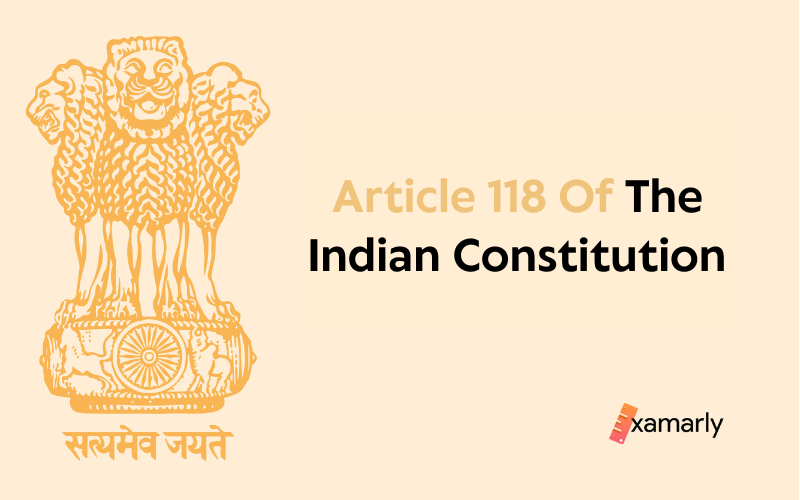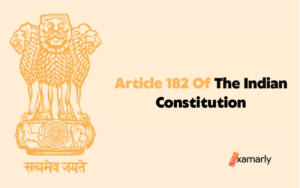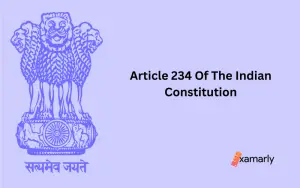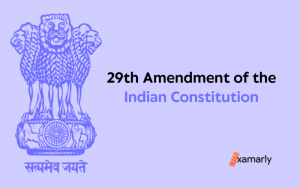The Constitution of India has been divided into several parts, each concerned with specific responsibilities and duties. Part V of the Indian Constitution deals with the Union of India.
Article 118 is contained in Part V of the Indian Constitution itself. Article 118 talks about certain rules for regulations which are known as the Rules of Procedure. These are further divided into four clauses. Let us explore Article 118 in great detail through this article.
- Article 118 Of The Indian Constitution: Constitutional Provisions
- Rules Governing Both The Houses Of The Parliament
- Conclusion
- FAQs
- Q. What Does Article 118(1) Of The Indian Constitution Talk About?
- Q. What Is Meant By Rules Of Procedure?
- Q. How Many Clauses Are There In Article 118 Of The Indian Constitution?
- Q. Which Article Deals With The Rules Of Procedure?
- Q. Which Amendment Of The Indian Constitution Has Amended Article 118?
- Q. Which Three Articles Of The Indian Constitution Deal With Rules Of Procedure And Regulation By Law Of Procedure In Parliament?
Article 118 Of The Indian Constitution: Constitutional Provisions
The Constitutional provisions brought about by Article 118 of the Indian Constitution are separated into four clauses. They have been briefly discussed in the following lines.
Clause (1) of Article 118 grants to each House of Parliament the authority to establish rules governing its operations and fulfilling of duties. However, it is subject to the provisions of this Constitution.
The provision under clause (2) is in relation to the previous clause. It clarifies that the standing orders and rules of procedure that adhered to the legislature of the Dominion of India immediately prior to the commencement of this Constitution shall apply to Parliament until rules are made pursuant to clause (1). These are subject to any modifications and adaptations that may be made in a manner prescribed by a competent authority. This may be done by either the Chairman of the Council of States or the Speaker of the House of the People.
According to clause (3) under Article 118 of the Indian Constitution, the President is bestowed with the responsibility of making rules concerned with the conduct of joint sessions of the two Houses and communications between them. The President must take the opinion of the Chairman of the Council of States and the Speaker of the House of the People for the above purpose.
The final provision or clause (4) renders authority to the procedure with respect to joint sittings of the two Houses. The presiding power lies with the Speaker of the House of the People or on a person as per the rules of procedure made by clause (3) of this article, in case the former fails to remain present.
Rules Governing Both The Houses Of The Parliament
Each House of the Parliament has its distinct set of rules known as the Rules of Procedure to determine its daily functioning and keep in check every aspect related to its governance.
These rules have an impact on the involvement of MPs in the proceedings of the Parliament. Alongside this, these rules also determine the framing of laws, passing of budgets, scrutinising the government to keep a check on its power and lastly, representing the common masses.
Hence, Article 118 of the Indian Constitution plays a very crucial rule in keeping the Indian Constitution up to date and empowering it at the same time.
Through clause (1) of the said article, a special power is granted to the two Houses of Parliament. The two Houses have the authority to make rules and take charge of their functioning through this constitutional provision.
A brief framework for Rajya Sabha regulations was created under clause (2) of Article 118 of the Constitution. This provision gave the Rajya Sabha chairman the power to amend and approve regulations that had been in force prior to the Constitution’s creation. The Chairman of the Council of States or the Speaker of the House of the People .
Conclusion
The several parts of the Indian Constitution are targeted to fulfil a specific function. Part V specifically deals with the Union of India which contains Rules of Procedure in Article 118 of the Indian Constitution. Divided into four clauses, these provisions render special powers to the two Houses of Parliament, the Chairman of the Council of States, the President, Speaker of the House of the People or a person as per clause (4) in the former’s absence for specific purposes.
For further readings:
| 42nd Amendment Of Indian Constitution | Article 113 Of The Indian Constitution |
| Article 114 Of The Indian Constitution | Article 112 Of The Indian Constitution |
FAQs
Q. What Does Article 118(1) Of The Indian Constitution Talk About?
Clause (1) of Article 118 of the Indian Constitution facilitates each of the two Houses of the Parliament to frame rules for regulating as well as governing their operations and conduct of business. This is in accordance with the provisions that have been mentioned in the Indian Constitution.
Q. What Is Meant By Rules Of Procedure?
Rules of Procedure in respect to the smooth conduct of the roles and responsibilities of the legislative bodies are the rules and regulations specified in Article 118 under Part V of the Indian Constitution.
Q. How Many Clauses Are There In Article 118 Of The Indian Constitution?
Article 118 of the Indian Constitution is further divided into four clauses which individually contribute to the constitutional provisions.
Q. Which Article Deals With The Rules Of Procedure?
The Rules of Procedure are mentioned in details in Article 118 of the Indian Constitution.
Q. Which Amendment Of The Indian Constitution Has Amended Article 118?
The 42nd Amendment Act of the Indian Constitution played an indispensable role in modifying the provisions contained in Article 118 of the Indian Constitution.
Q. Which Three Articles Of The Indian Constitution Deal With Rules Of Procedure And Regulation By Law Of Procedure In Parliament?
The special provisions of Article 117, Article 118, and Article 119 of the Indian Constitution deal with Rules of Procedure and Regulation by law of procedure in Parliament.






